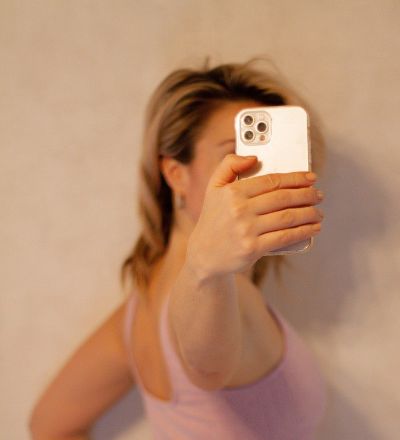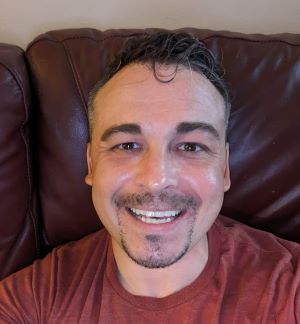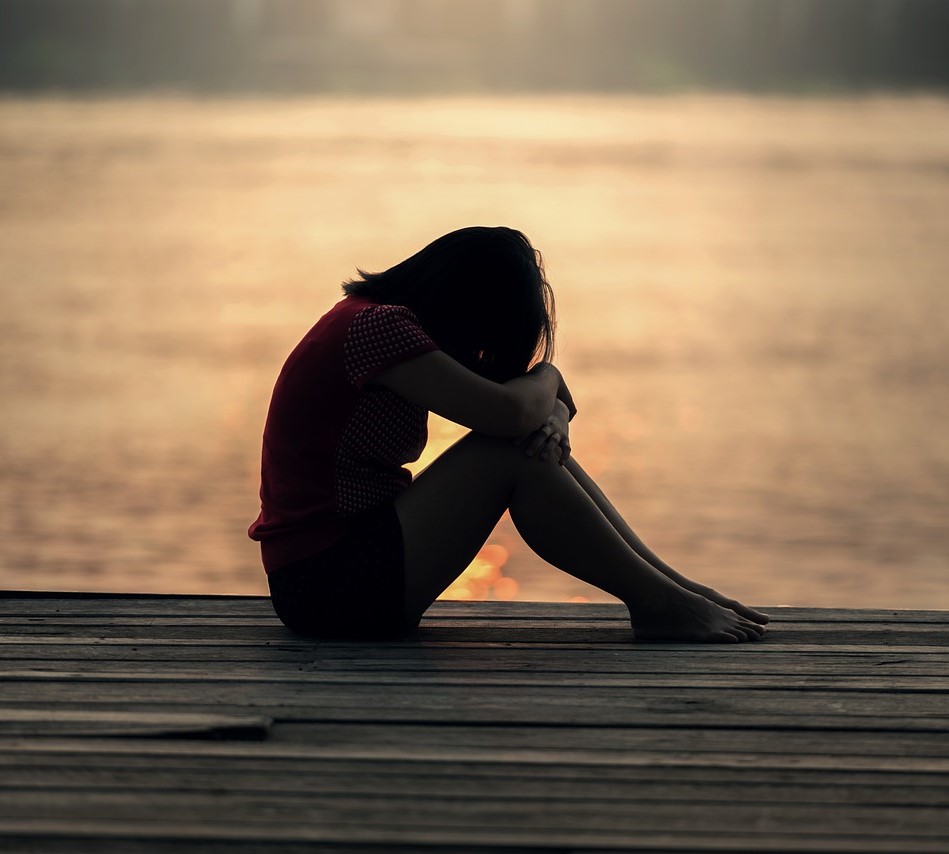My Battle with Acne and BDD

My Battle with Acne and Body Dysmorphic Disorder
Guest Blog Post by Adam Steg
Cystic acne has been studied for more than eighty years by researchers and clinicians. According to an article in the 1948 issue of Medical Clinics of North America (Sulzberger & Ziadens), cystic acne can cause psychic trauma, maladjustment between parents and children, general insecurity, feelings of inferiority, and psychic suffering.
I would argue this statement is no less true now than it was then. I have battled severe cystic acne since I was a teenager. I am 44 years old and the battles I’ve fought have left me with physical scars. Worse than that, I also suffer from psychological scars that I am only now beginning to understand.
Cystic Acne and BDD
When I had cystic acne, I looked in the mirror and only saw my flaws. Even when my skin was “clear,” I still saw the flaws/marks/imperfections. I avoided mirrors or any reflective surfaces for fear of seeing those perceived flaws. Other times, I obsessively checked my face for any blemishes. Those habits ultimately led to persistent feelings of worthlessness and shame. They had a profoundly negative impact on my life.
One year ago, I was formally diagnosed with body dysmorphic disorder (BDD). I started to realize the problem wasn’t with my skin but was a mental illness. For sufferers of BDD, the pain you feel isn’t from a cut you can put a band-aid on or an itch that you can scratch. No…the pain is emotional, and it is like no other pain imaginable.
If I had to put it into words, it almost feels like you are in mourning. For what, I’m not entirely sure. Perhaps you are mourning the person you were or wanted to be. Perhaps there is some deep regret for not being able to reach that goal of perfection.
I am only now understanding that this so-called “perfection” has been the enemy all along. To an outsider, this all may seem to be about vanity. But BDD is not about vanity. To quote one of my favorite films, Vanilla Sky (2001), “this isn’t about vanity, it’s about functioning in the world.”
Getting Help and Support
I would like to share some of the ways that I have dealt with BDD. My goal is to potentially help others with this disorder. First, if you think you have BDD or suffer from BDD symptoms, get the help you need. My dermatologist actually referred me to a psychiatrist. The psychiatrist then diagnosed me with BDD.
The BDD diagnosis was a huge step in starting my recovery. It can be confusing at first, trying to accept the truth. That what you have been seeing in the mirror for decades might not actually be you. That the reflection you see is not the way others see you. In all honesty, I am still struggling with this paradox.
I was prescribed an antidepressant called Fluoxetine (more commonly known as Prozac). My current dosage of 80mg has made a huge difference in my life. The compulsions to frequently check the mirror and constant worries about how my skin looks have become a whisper now.
Granted, I still find it difficult to look in the mirror. But not having those horrible thoughts constantly running through my head has been life changing. I can now focus on more important things like my job and my family. I’ve even found face-to-face interactions far more bearable, even enjoyable, compared to the absolute torture they once were.
I also see a therapist on a regular basis to discuss my BDD. We focus on identifying things that make it worse and coming up with healthy ways to handle these stressors. This too has had a huge impact on my quality of life. Exercising regularly and joining a BDD support group were some of the activities my therapist and I came up with. I will say that joining a support group and hearing what others have experienced with BDD was eye-opening. I think a lot of BDD sufferers (myself included) feel isolated and alone in their struggles. So, it was a relief to know that others were feeling the same things I do.
Coping and Recovery
Lastly, I was lucky enough to have supportive friends and family throughout my struggles. This support was probably the most important for dealing with BDD, long before I even knew what that was. Parents, siblings, friends and significant others were all instrumental in helping me through difficult times.
I would be lying if I said suicide hasn’t crossed my mind countless times because of this disease. But being able to open up to someone about how you’re feeling can be a literal life saver, even if the person doesn’t fully understand your situation. You would be surprised by how compassionate people can be.
I can only hope that some of the treatments and coping strategies I’ve mentioned are helpful to you. Obviously, we all respond differently to different things. It is important to keep in mind that recovery from BDD is possible. It may not be a quick process and I am just beginning my own recovery. But, for the first time, I finally have a sense of being able to put this behind me and live my life unimpeded.



